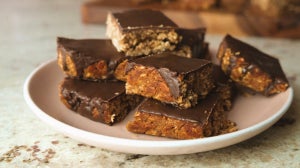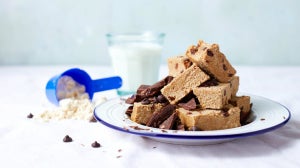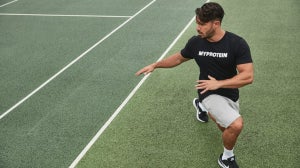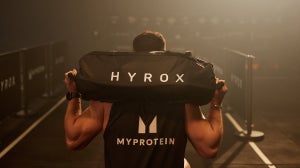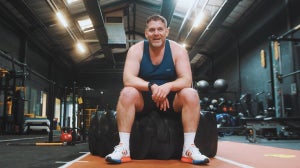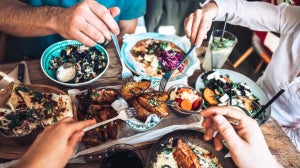
Starting your own health and fitness journey can be quite daunting at first. However, beginning to dedicate your time to the gym - although both physically and mentally demanding - does take up a very small portion of the day, and can deliver an abundance of benefits!
But then there's the food.What diet is best? What should I eat? What should I avoid? And how do I make broccoli taste good - every day?
Well, let’s take a look at what I would recommend putting into your shopping basket to start off your fitness journey. Do bear in mind this list is not definitive, merely a guide to get you started!
Shopping List | Protein Sources
When looking to get “shredded,” the most common change most put into their diet is the inclusion of protein. Trust me - this is for good reason.
The macronutrient protein is responsible for giving the body Essential Amino Acids (EAA’s). Now as the word suggests these are essential, the body cannot simply synthesise EAA’s without them coming from the diet.
Without eating adequate protein, the body will pull amino acids from the muscle itself, therefore leading to a reduction in muscle mass - and in turn - a reduction in metabolic rate. In simple terms, more fat and less muscle. Not good!Personally, I would look for my clients to eat 1 gram of protein per pound of lean body mass (AKA LBM: the weight of someone devoid of fat e.g., if you are 200lbs with 20% body fat your LBM, is 160lbs).| Animal Protein | Non-Animal Protein |
| Chicken (avoid skin) | Soy Protein/Edamame |
| Beef – Steak & mince (lean) | Tempeh & Tofu |
| Turkey - (lean) | Quinoa |
| Whole Eggs & Egg Whites | Green peas & Leafy greens |
| Fish – Salmon, Cod & Trout | Beans & legumes |
| Whey Protein | Vegan protein powder |
| Greek Yoghurt | Non-dairy yoghurt |
| Cottage cheese | Seeds e.g Chia, sunflower |

Shopping List | Carbohydrate Sources
Maybe the most understood macronutrient is that of carbohydrates. Many people fear carbs due to their negative conations in the media such as “No carbs before marbs” & “No carbs before bed”. But when utilised correctly carbohydrates can have a very positive effect on the body.
Not essential to the body but the brain and body typically perform best using glucose (what carbs are broken down into). Keeping carbohydrates in the diet helps keep levels of leptin high as well, meaning a faster metabolism and more fat burning.
Carbohydrates also provide the body with fuel, therefore with having them in your diet, you can help you to perform better in the gym and have harder better workouts.
Fibrous carbohydrates cannot be forgotten, fibre helps keep the digestive system moving, keeps you full and provide lots of minerals and vitamins when in the form of vegetables. Look to eat 1-2g of carbs per pound of LBM (dependent on body fat levels, more body fat start lower, less body fat start higher, then adjust dependent on goals).
| Carbohydrates | Types |
| Rice | Both white and brown |
| Potatoes | Both sweet and white |
| Oats and cereal | Look for high fibre cereals) |
| Fruit | Berries are superfoods! |
| Vegetables | Leafy greens and colourful veg |
| Bread | Dependent on digestion issues |

Shopping List | Fat Sources
The last and another misunderstood macronutrient are that of fat. And to be honest it is a good reason, with a name like fat you can understand the common perception of fat will make you fat.
Similar to protein though, fat is also essential (EFA’s – essential fatty acids). If the body does not receive ample EFA’s then it will not release anybody fat as it is not getting enough from the diet.
Fat also is very important for hormonal production so men looking to increase testosterone levels will benefit from fat intake in the diet. Certain vitamins cannot be absorbed by the body without a daily fat intake either, vitamins A, D, E & K all require fat in the diet for full absorption.
But fat is calorific (more than twice as much as protein and carbs at 9 kcals per gram) so look to eat between 0.3-0.5 grams of fat per pound of LBM.
| Carbohydrates | Types |
| Avocados | Make sure they're nice & ripe! |
| Nuts & butters - avoid salted | Peanuts, almonds, cashews |
| Oily Fish | Salmon, mackerel, trout, sardines |
| Free Range Eggs | Organic if you can! |
| Oils | Coconut oil, omega 3 oil/extra virgin |

Weight Loss | Supplementation
When all of these aspects of nutrition have been put into place then adequate supplementation can be put into place.
As supplements are just that - to help supplement a healthy diet.

Here a few basic supplements to consider!
1) Multivitamin
For most, it’s pretty difficult to squeeze in 7 essential vitamins, in addition to B vitamins, vitamin C, E, A and D3 – especially those who live a hectic lifestyle.
Including daily vitamins in the diet is generally important - but even more so for those who are demanding their body to eat fewer through physical exercise.
Are you a none-meat eater?Vitamin B12 is beneficial for vegetarians to compensate nutrients derived from animal-based protein that ensure red blood cells remain healthy - - exactly what you need if you are following a calorie restricted diet!
2) Omega 3
Probably the most underrated supplement on the market is Omega 3 derived from fish oil. As an Essential Fatty Acid (EFA) it is just that – essential. This is due to the fact that we cannot synthesise it in our bodies, therefore we need to eat or supplement Omega-3 in order to get enough of it in our diet.
Omega 3’s have also been shown to help burn more fat for those in a caloric deficit. This is due to the fact it helps with Beta-oxidation (the breakdown of fatty acids to be used as energy). By supplementing with Omega 3, you have a better chance of increasing your body’s ability to use its own fat stores as energy and thus burning body fat in the process.
3) Whey Protein/Vegan Protein Powder
As mentioned in the protein sources, protein powder is an effective and convenient form of protein. Supplementing with either whey or something like none-dairy like hemp or soy protein can help support muscle growth, help curb hunger, keep you fuller for longer in and contribute to kick-starting your metabolism to keep fat loss going.
3) Additional Supplementation
If weight loss is the goal and you have sound nutrition, Myprotein's Innovative MYTHERMO X-TREME can help you reach your goals! An essential component of this formula is Kola Nut, the fruit of the Kola Tree which can help to support slimming and contributes to body weight control. This formula also contains vitamins and minerals that play a key role in your body’s metabolism.
Additional Choline contributes to normal lipid metabolism, meaning that it plays an important role in the conversion of fat into energy; whilst chromium contributes to normal macronutrient metabolism, vitamin B6 contributes to normal energy-yielding metabolism and vitamin B12 contributes to normal homocysteine metabolism.
Take Home Message
There we have it! A simple guide to kick-starting your weight loss.
I hope you've found this a useful article for beginning a new journey to reach your goals.
Tag @MyproteinUK on Instagram to share your progress!
Our articles should be used for informational and educational purposes only and are not intended to be taken as medical advice. If you're concerned, consult a health professional before taking dietary supplements or introducing any major changes to your diet.


